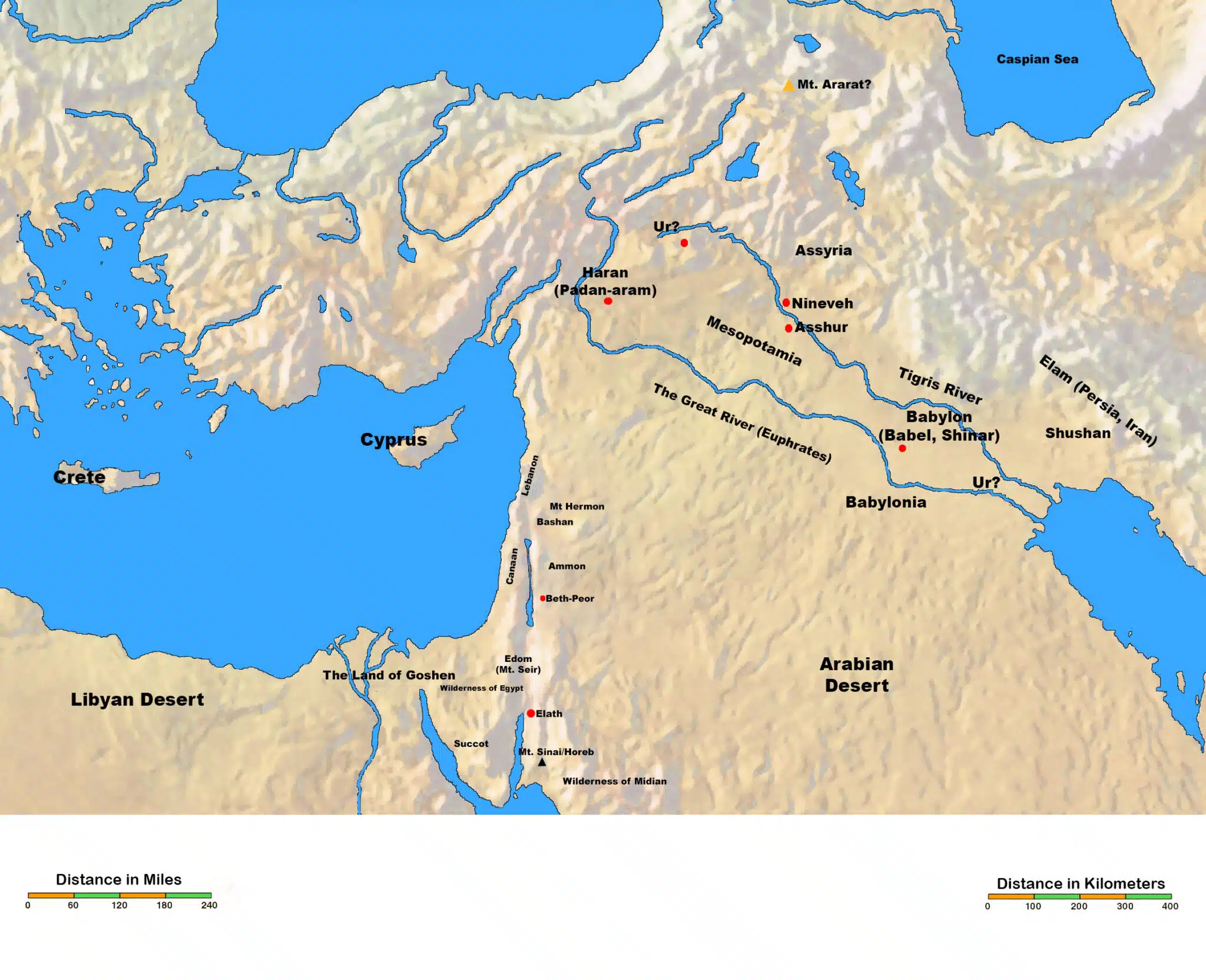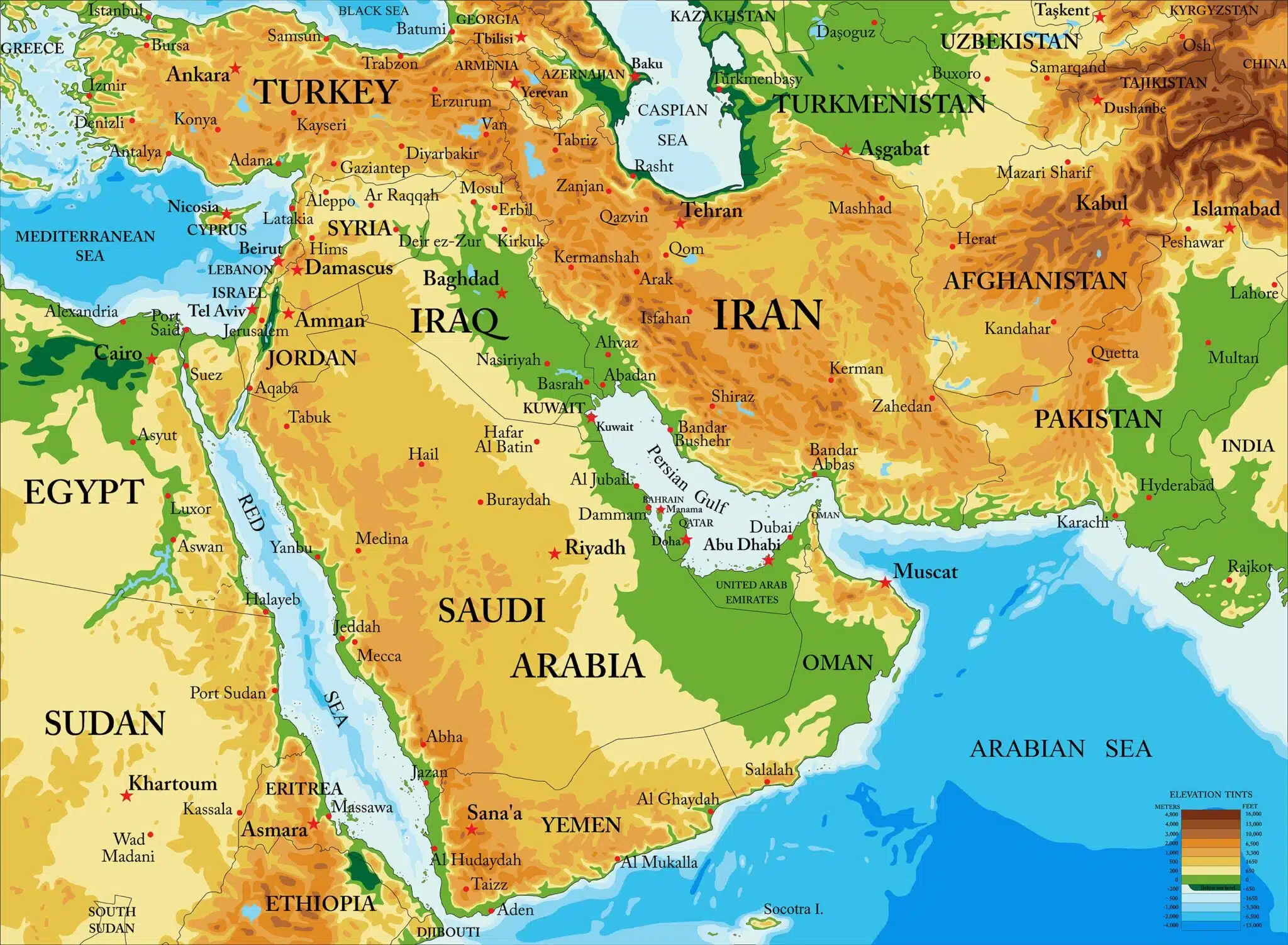Noah was 600 years old when the flood came. There were eight people, and a male and female of every kind of animal on the ark as God had commanded. The waters of the flood came from the deeps of the earth and the sky. It rained for forty days and nights. However, Noah, his family, and all the animals were secure in the ark.
Throughout Genesis 6-8 we notice a dramatic effect by the use of repetition. This repetition is intended to emphasize certain details over others. God’s intention to destroy the inhabitants of the earth is stated four times (Genesis 6:5-7,11-13,17; 7:4). Four times it is recorded that Noah and his family entered the ark (Genesis 7:7-9,13-16). Three times the coming of the rain is announced (Genesis 7:6,10-12). And four times Noah is said to obey God’s command (6:22; 7:5, 7:9, 7:16). The prevailing or increasing of the waters in mentioned by repetition, these things are highlighted.
The floodgates of the sky were opened wide along with the fountains of the great deep which also burst open. The water came upon the earth. “Came upon” could be translated engulfed. The source of the flood was not only rain. Water also came from the underground waters of the earth which could include springs and underground water reservoirs. It could also involve a shift in the elevation of the floor of the sea.
The water also came from the atmosphere as heaven opened wide and poured out rain on the earth. The rain fell upon the earth for forty days and forty nights. The volume and violence of the water wreaked havoc on the face of the earth.
Some say the flood was not a global flood. If this were true, then the ark would not have been needed. If this were just a local flood, then God’s promise to never again bring such a flood would be false (Genesis 8:21; 9:11-13). Also, the Bible traces all of humanity back to Noah’s sons, and other scriptures mention a universal flood (Psalm 104:5-9; 2 Peter 3:5-6). The flood was global and not a local one. Since all mankind came from Noah’s sons, most of the world’s nations have some account of a flood story.
At least 200 cultures have their own version of a world flood. Based on the Institute for Creation Research:
- 88% describe a favored family
- 70% mention a boat for survival
- 95% say the catastrophe was solely by a flood
- 67% mention that animals were saved too
- 57% record the survivors end up on a mountain[1]
Of course the real story is recorded in the Bible. These stories were carried into different nations and became part of their tradition as the various people settled into other countries.
In verse 14 notice the represented description of the animal world; every beast after its kind, and all the cattle after their kind, and every creeping thing that creeps on the earth after its kind, and every bird after its kind, all sorts of birds. The Hebrew word translated beasts generally means “living.” It is important to note that each “kind” of living beast was included. This narrows dramatically the number of beasts that would be necessary to include all species. We now know that genetic information does not jump boundaries of “kinds,” but within “kinds” exists a wide variety of animals. The words all sorts of birds seems redundant, but could be included to indicate the inclusion of some other winged things, such as bats and bees as well as birds.
[1] Morris, J. D. (2001, September 1). Why Does Nearly Every Culture Have a Tradition of a Global Flood? Retrieved from https://www.icr.org/article/why-does-nearly-every-culture-have-tradition-globa/
Biblical Text
6 Now Noah was six hundred years old when the flood of water came upon the earth. 7 Then Noah and his sons and his wife and his sons’ wives with him entered the ark because of the water of the flood. 8 Of clean animals and animals that are not clean and birds and everything that creeps on the ground, 9 there went into the ark to Noah by twos, male and female, as God had commanded Noah. 10 It came about after the seven days, that the water of the flood came upon the earth. 11 In the six hundredth year of Noah’s life, in the second month, on the seventeenth day of the month, on the same day all the fountains of the great deep burst open, and the floodgates of the sky were opened. 12 The rain fell upon the earth for forty days and forty nights. 13 On the very same day Noah and Shem and Ham and Japheth, the sons of Noah, and Noah’s wife and the three wives of his sons with them, entered the ark, 14 they and every beast after its kind, and all the cattle after their kind, and every creeping thing that creeps on the earth after its kind, and every bird after its kind, all sorts of birds.
Check out our other commentaries:
-
Isaiah 52:13-15 meaning
Isaiah begins his fourth Servant Song prophesying about the Messiah. It speaks of how the Messiah will prosper and be exalted before making predictions that...... -
Matthew 24:29-31 meaning
Jesus finishes the answer to the second question about the sign of His coming. Jesus will gather His elect, shake the powers of the heavens,...... -
Numbers 5:11-15 meaning
The next subject, which is called “the law of jealousy” in Numbers 5:31, is discussed in verses 11-31. It concerns marital infidelity that was suspected...... -
Romans 16:25-27 meaning
Paul ends his letter with a blessing. His entire letter was about the gospel of grace and living by faith, living righteously through the resurrection...... -
Daniel 3:24-27 meaning
King Nebuchadnezzar witnesses a miracle. Shadrach, Meshach and Abed-nego are not killed by the fire. They are joined by an angel, and walk among the......




